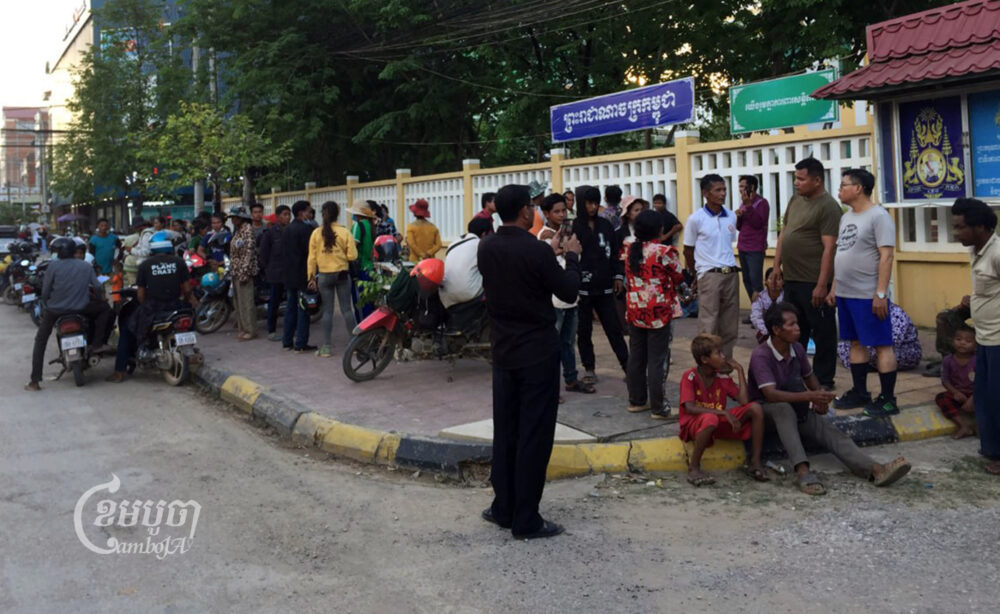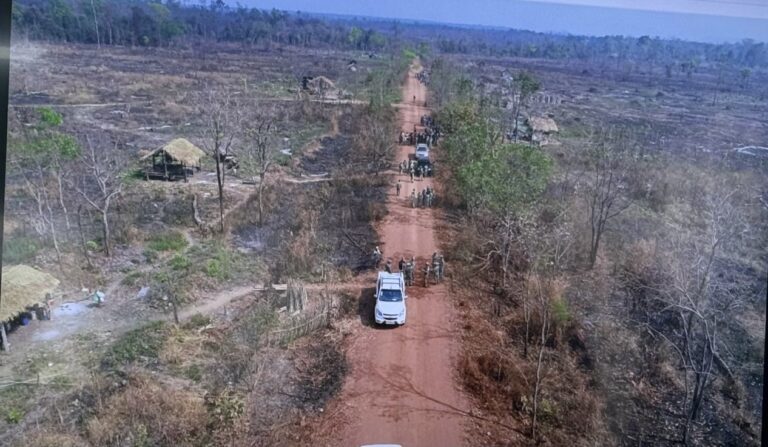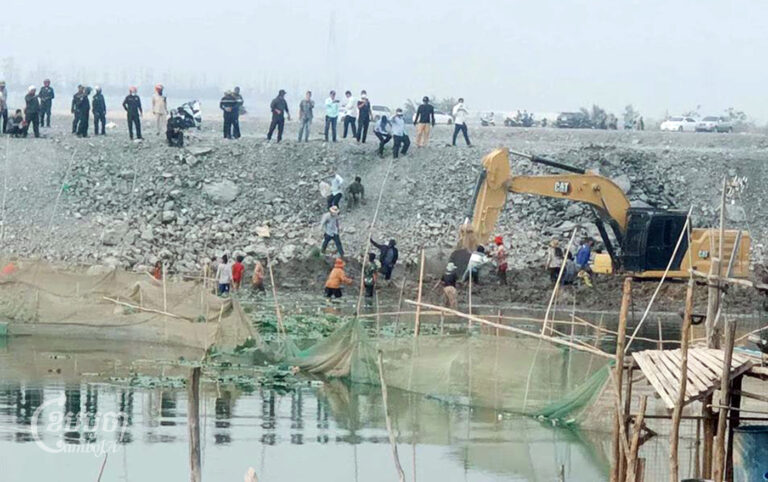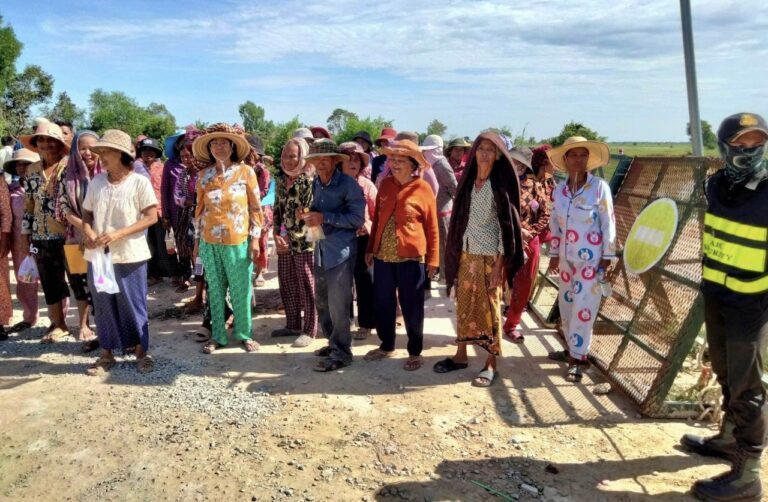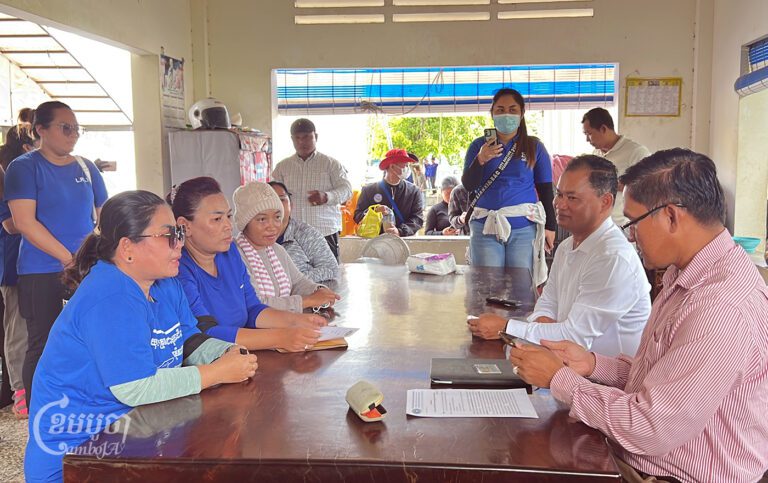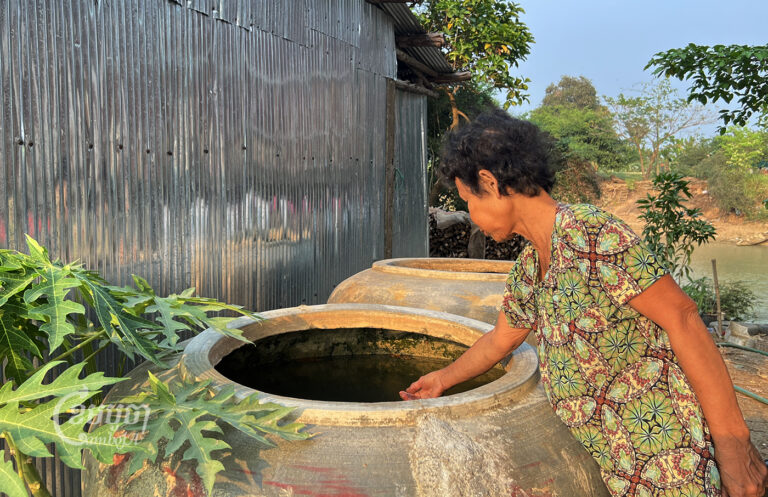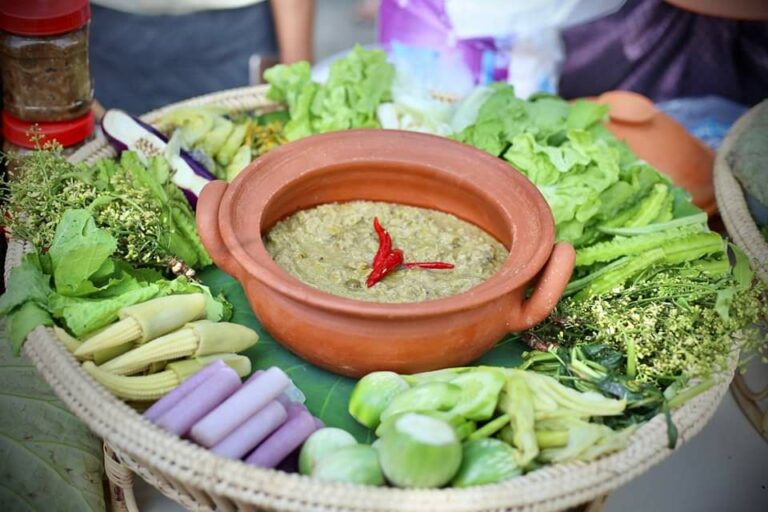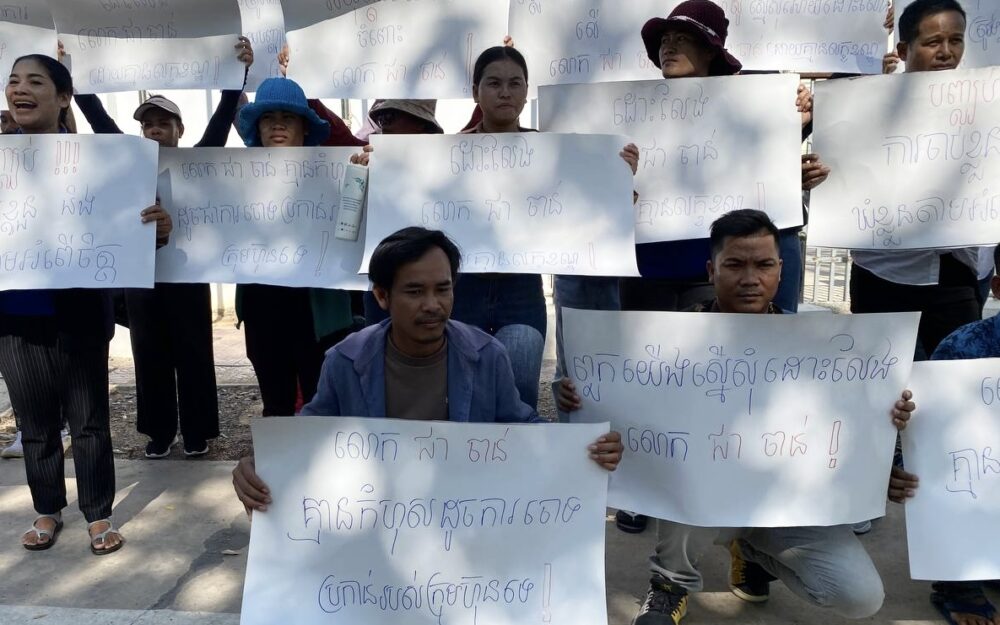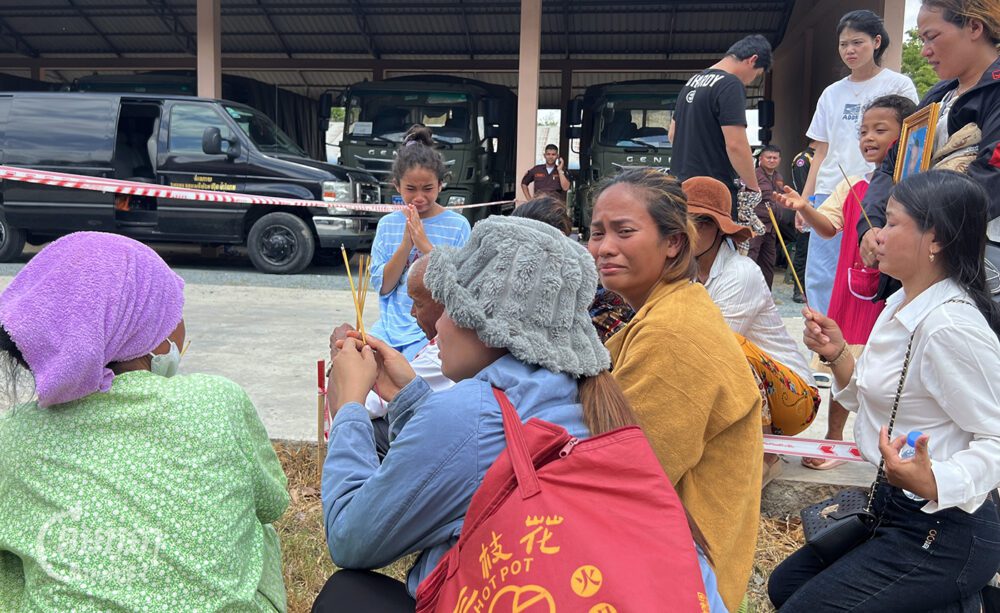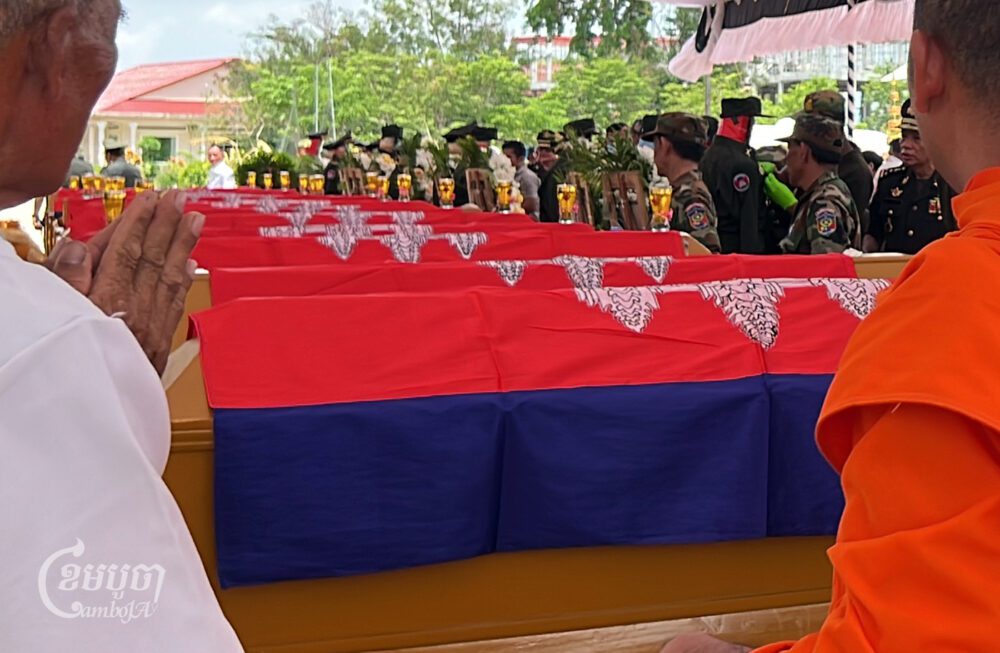Battambang provincial court placed five community activists in pre-trial detention last Friday, alleging they had encroached on state-owned private land leased to the Rath Sambath company in Samlot district’s Ta Tork commune.
Around 100 residents of Ou Tatiek village, the site of the land dispute, gathered outside the court to demand the release of their representatives.
Ou Tatiek resident Sin Liden said villagers also requested that Prime Minister Hun Sen provide land to more than 200 families and allow them to use and live on more than 500 hectares of land currently classified as state land granted to the company.
“We will not return home if the court does not release the five representatives. We will be willing to sleep in front of the court until our representatives are released,” Liden said last Friday.
The detained representatives were Thung Yeang, 27, Meas Touch, 37, Thun Thean, 34, Hoeum Mai, 44, and Nget Chantha, according to Mao. A sixth representative was called for questioning but allowed to return home.
Battambang provincial court prosecutor Keo Socheat confirmed that all five were imprisoned on Friday evening but referred further questions to court spokesperson Tuth Vinith, who could not be reached.
The five representatives had been detained on the morning of June 22. They had been summoned to meet with the Ta Tork commune chief at the commune hall to solve the dispute, which had led around 200 people to install a ruling CPP sign in front of the gate to the company on June 18, according to another community representative, Nuth Mao.
“The authorities deceived my representative to the commune hall to solve the issue,” Mao said. “Suddenly, the authorities came to arrest them.”
While the residents protested the detention of their representatives last week, Mao claimed that Forestry Administration and police authorities cleared more than a dozen of their houses using bulldozers.
Protestors left the court and returned to their village. Commune and district police said they had gone to the village at that time but did not destroy any homes.
The authorities forced people to sign contracts to dismantle their homes within three days, Mao said. But nothing has happened as of Tuesday, he added.
The court had first summoned the five representatives, along with a sixth person, for questioning on January 18 in relation to a criminal case dated January 5. The plaintiff was Chhim Vichara, director of the Provincial Department of Agriculture, Forestry and Fisheries.
The court order accused six Ou Tatiek representatives of encroaching on state land and obstructing public officials between October and December 2022.
Samlot district police chief Men Rim said authorities had arrested five of the six representatives named in the court order in relation to a January court order.
A sixth representative, Meas Raksmey, 31, had left for Phnom Penh before authorities could detain her, Rim said.
“We made the arrest based on the order related to the encroachment on the state’s private land invested by the company Rath Sambath but I was not clear,” Rim said. “The Department of Agriculture is aware of this and it is not relevant to install the party sign.”
Rim said that the Department of Agriculture came to make a contract and ordered residents to dismantle their houses and leave the state land invested by the company.
Forestry Administration Officer of the Department of Agriculture Chhay Nareth declined to comment and referred questions to the director of the Department of Agriculture.
Chhay Nareth said “I went with my boss,” Nareth said. “To be clear, you can contact the director of the department because I have no right [to talk].”
Director of the Provincial Department of Agriculture Chhim Vichara could not be reached for comment.
The Battambang court also issued summons on June 14 ordering seven other people to appear on July 4 for questioning, following a complaint from Minh Kanha Roth, a representative of Rath Sambath Company. The document was viewed by CamboJA.
Rath Sambath company did not respond to a request for comment.
The seven Ta Tork commune residents — Hem Mai, Nget Chantha, Meas Touch, Meas Raksmey, Thung Yeang, Thun Thean, Suon Socheat — are accused of building houses and encroaching on the company’s farmland.
Ou Tatiek village resident Mao claimed that the villagers had been using the land in the area since 1993, but later the Rath Sambath company received the right from the state to invest and came to clear and began to evict people in 2011.
He said that people heard that in 2017 the company had returned the land to the state, saw the land was vacant, and returned to use the land in this location in 2021. He estimated a total of 229 families occupied 552 contested hectares of land.
“We are determined not to leave our land,” Mao said.
Ta Tork commune chief Un Khem said that the land overlaps with a concession awarded to Rath Sambath company. While 5,000 hectares were initially provided, more than 2,000 hectares were cut out and given to local residents in the past five years, he added.
“According to my inspection at the above location, it does not have any people’s land. It is state land that has been mapped correctly,” he said.
Khem claimed that the villagers on the 500 hectares of disputed land were mostly newcomers.
Human rights NGO Licadho’s Battambang officer, In Kongchet said that if people lacked land, the authorities should consider giving them additional land but that civil society did not support land encroachment.
“We ask the provincial authorities to set up a commission to conduct a census of people to find out whether they really live in the area or not,” he said. “And if they live in the local area and are short of land and no one is behind, [the government] should consider giving agricultural land to people to work on.”


